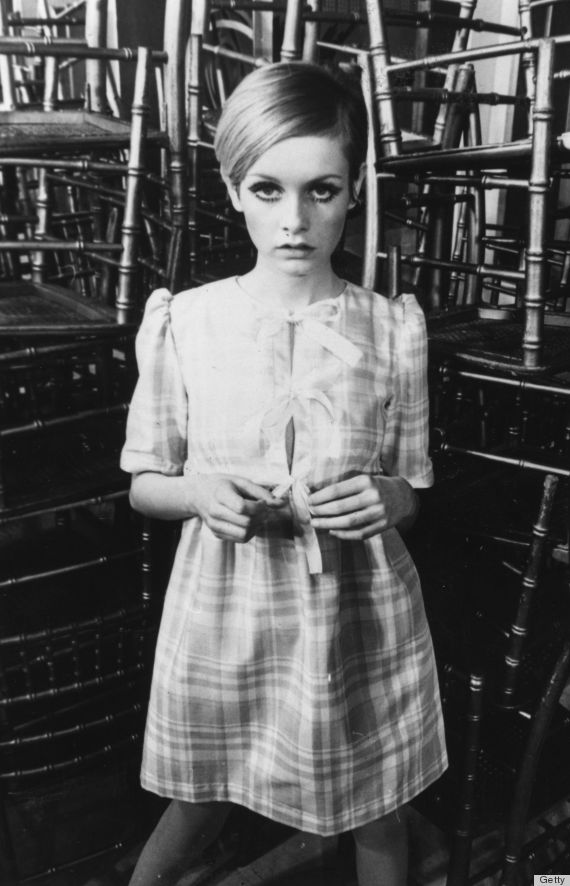The first thing I have to say is everything is going to be
all right. It just might take a history lesson to convince you.
Feminists have worked themselves into a lather over the Era
of the Asses - From Miley to Minaj to Kim "breaking the internet",
all the way to the absolute nadir of modern pop music, Jason Derulo's rancid
"Wiggle." Kim Kardashian was modelling everything but clothing in her
cover story for Love Magazine's February 2015 issue. Prada sunglasses and a Miu
Miu bag couldn't compete with the tits and slit in that stairwell photo, but
I'm not worried.
I am, after all, a scholar of fashion, so I know that
whenever women's rights take a step forward in the real world, fashion and pop
culture icons tend to swing the other way, if only for a while. It's a trend
that began in the 1920s after women got the right to vote. No, really. To us in
the 21st century, the iconic "flapper" of the twenties looks like a
glimpse of joyful rebellion - alongside the ramping up of first wave feminism,
the skirts and hair for rebellious young women got shorter, who traded in their
corsets for shapeless dresses that were easy to dance in.

Are they demanding equal pay for equal work? Nonsense, they
just want to be your little baby doll.

Do I exaggerate?
Every major social achievement for women in the last hundred
years has been marked by a regression in fashion. That's twiggy up there,
premiere model of the nineteen sixties, a time when Gloria Steinem and the pill
gave women a freedom they'd never enjoyed before. There were feminist sit ins
at Newsweek and the Ladies Home Journal. Radicals threw maxipads into a trash
can at the America pageant beneath a banner proclaiming "Women's
Liberation". Mad Men fans know the fights they went through in the
workplace, and anyone into fashion also remembers how short the skirts got
toward the end of the decade, once they started winning.
High fashion and pop culture have never been a marker for
the world we live in, but the world we wished we lived in - or rather, the
world that specific tastemakers wished we lived in. While second wave feminism
was scaring men and women alike, grown women were once again infantilized by
clothing fit for a child. We have twiggy to thank for models who today are so
thin they're practically invisible, because when some women started demanding
equal work opportunities, the old guard no doubt wished they would disappear
altogether.
But women bought those
clothes! you might exclaim. That's because feminism scared women too.
Having a voice, standing up to men you had always been taught to respect - even
today most of us would rather crawl back into our daddy's arms than accuse our
boss of sexual harassment, even if deep inside we knew it's our right. I never
saw Gloria Steinem in a miniskirt, and in the end it was women like her who
made the difference.
So maybe the age of the ass isn't as bad as we think.
Kim Kardashian, Nicki Minaj, and the vastly out of her
league Miley Cyrus are delivering a crass form of sexualisation, mistakenly
labelled as feminist by people who don't know any better ("It's my body, I should be able to show it
off how I like - and if 'how I like' is just a manifestation of ingrained
patriarchy,--then screw you for using such big words!"), but in the
real world where (most) people live and breathe, things are getting better.
Women still make less than 80 cents on the dollar compared
to men, but it's something we're talking about more openly than ever before.
The internet may have given a voice to both the best and worst in society, but
cyber bullying and sexual abuse of young girls are now less likely to be swept
under the rug, largely because of online activism. When Emma Watson made an
empowering speech to the United Nations last year, some hackers may have threatened
to release nude photos of the actress in retaliation, but the internet as a
whole was overwhelmingly on her side. Last year, when Cee Lo Green tweeted,
"women who have really been raped REMEMBER" it was met with the
proper level of disgust and him being dropped from festival appearances. Twenty
years ago, that would never have happened, and not just because there was no
twitter - if you want proof of that, consider the decades it took the
allegations against Bill Cosby to be taken seriously.
What this all means is that, by and large, women are growing
their voices in the digital age, and the haters are becoming more and more of a
minority. Knowing that, it was about time that our cultural icons regressed to
reassure the masses who aren't quite sure about all this female empowerment
going on. The popularity of the Kim Kardashian model of "fashion" -
that is, less clothes more attention - is hopefully the last gasp of something
ugly, rather than a marker for where society is headed. To the remaining men
who live in fear of being called on their leering sexism (and the women who have
yet to realize that such leering sexism is a problem), Kim's giant greased up
ass, offered forth like a baboon who's presenting, is a symbol of a simpler
time, of a femininity that doesn't think, doesn't demand answers, and might as
well be made of porcelain, just like Twiggy and the flappers before her.
What, did you think she was a rebel?

No comments:
Post a Comment